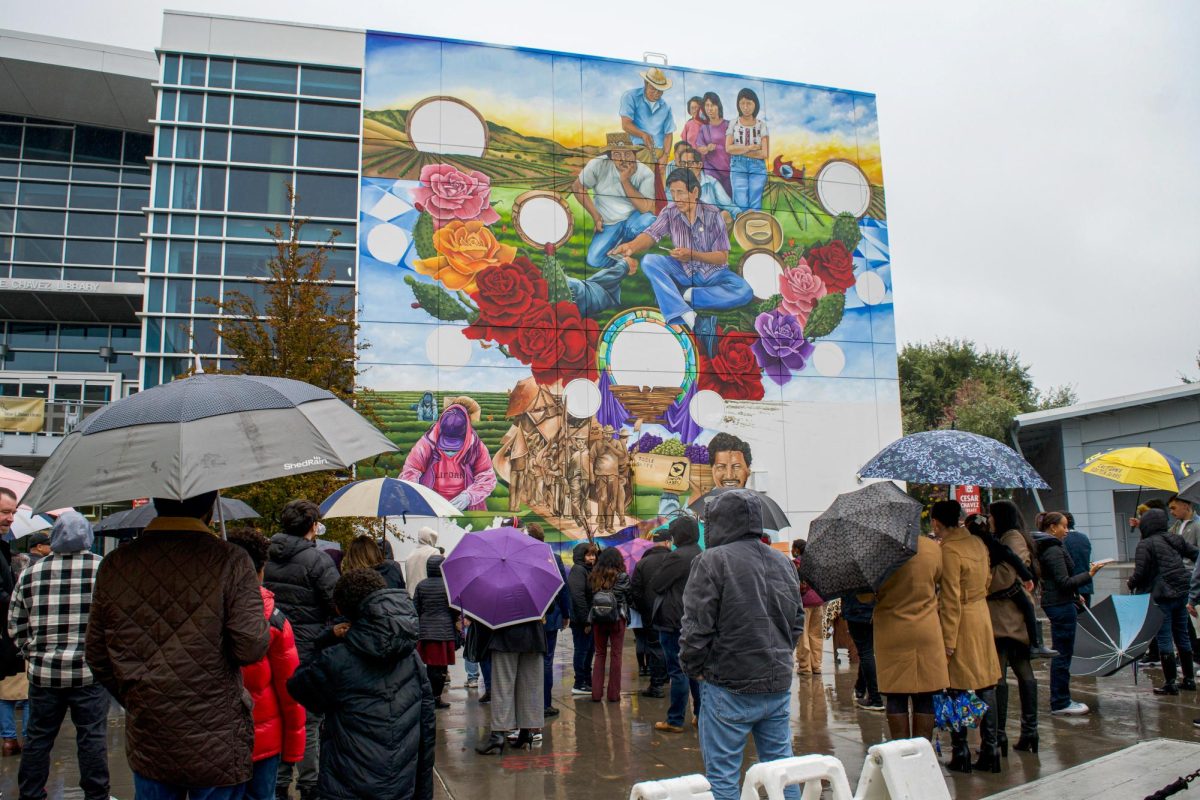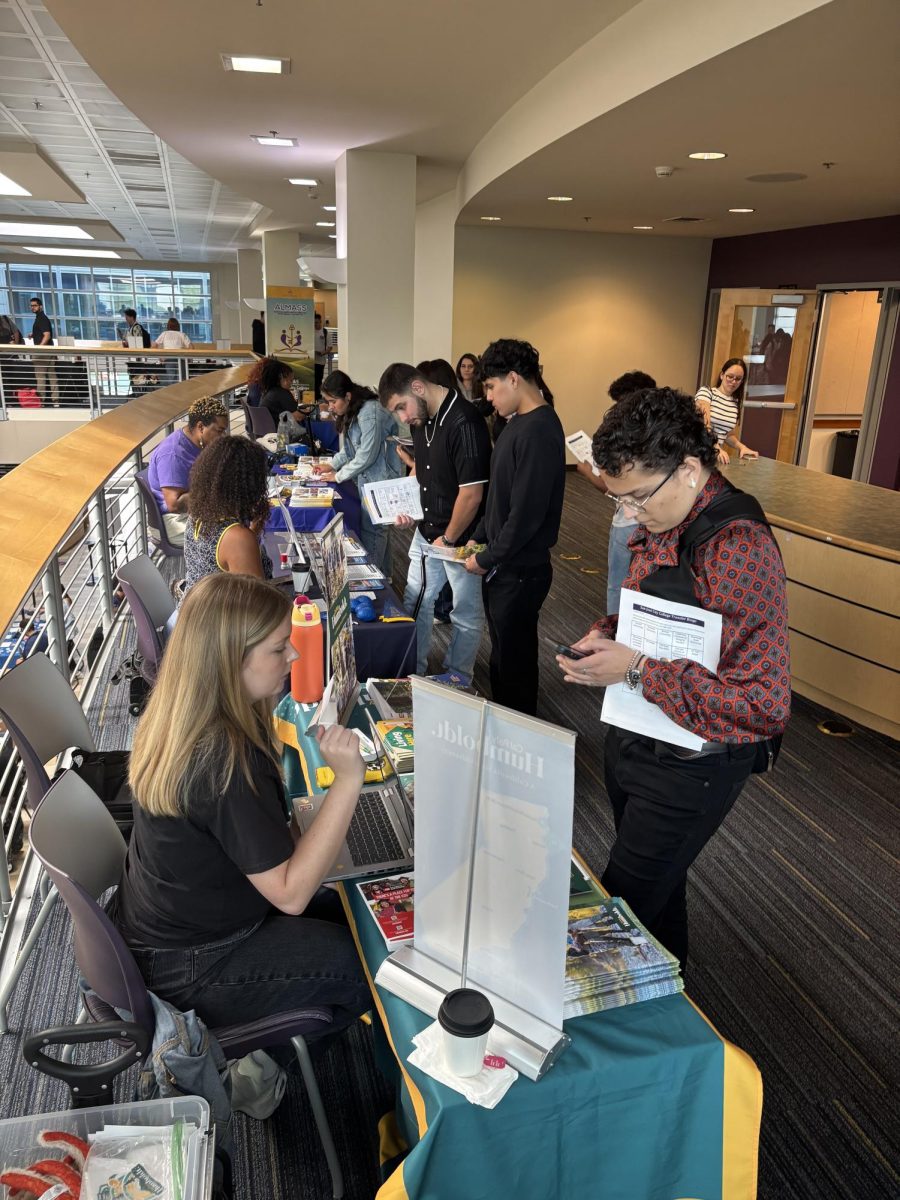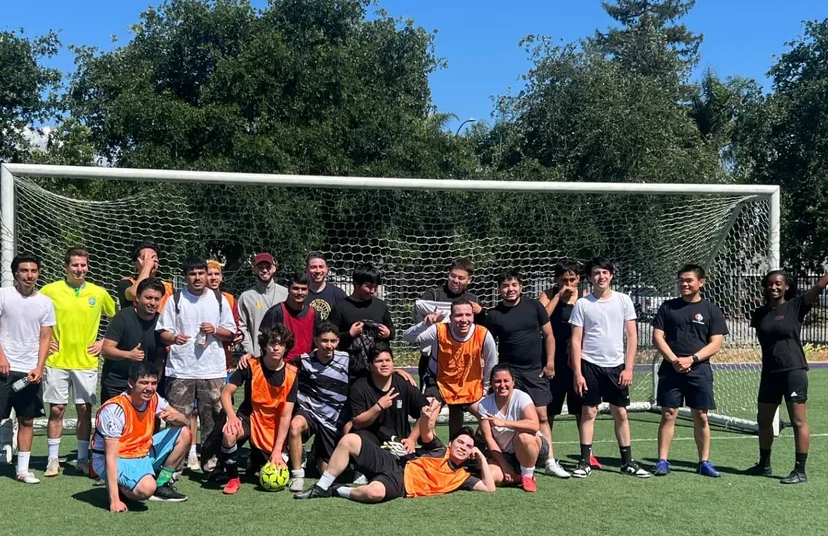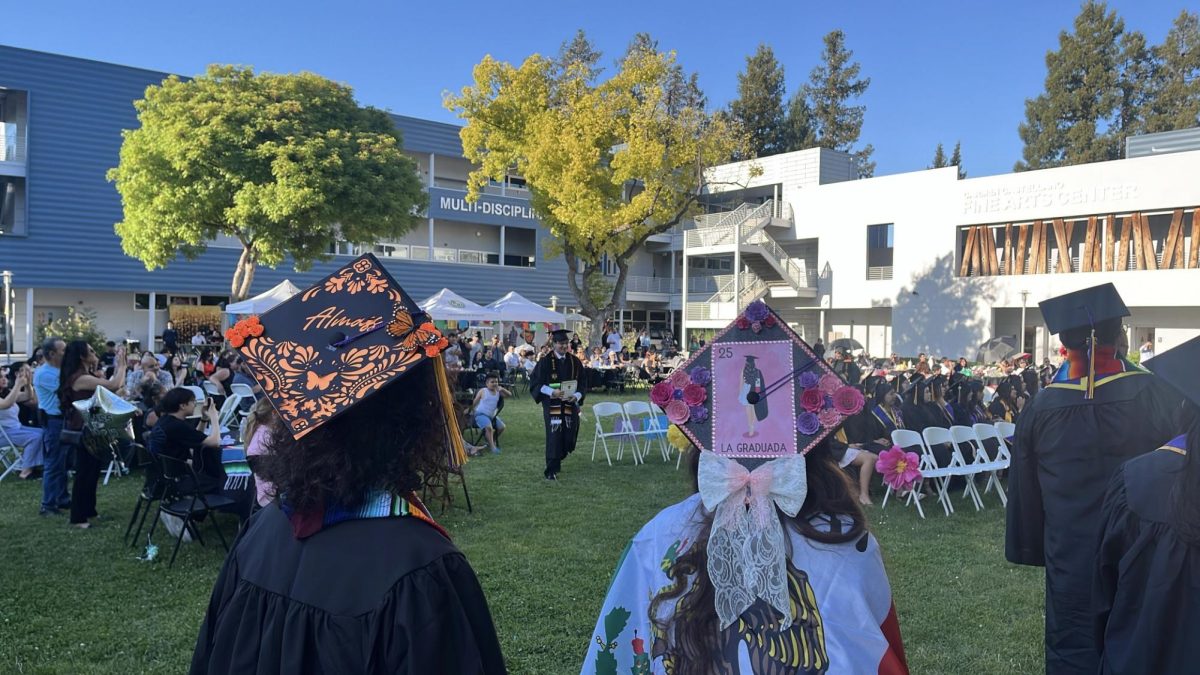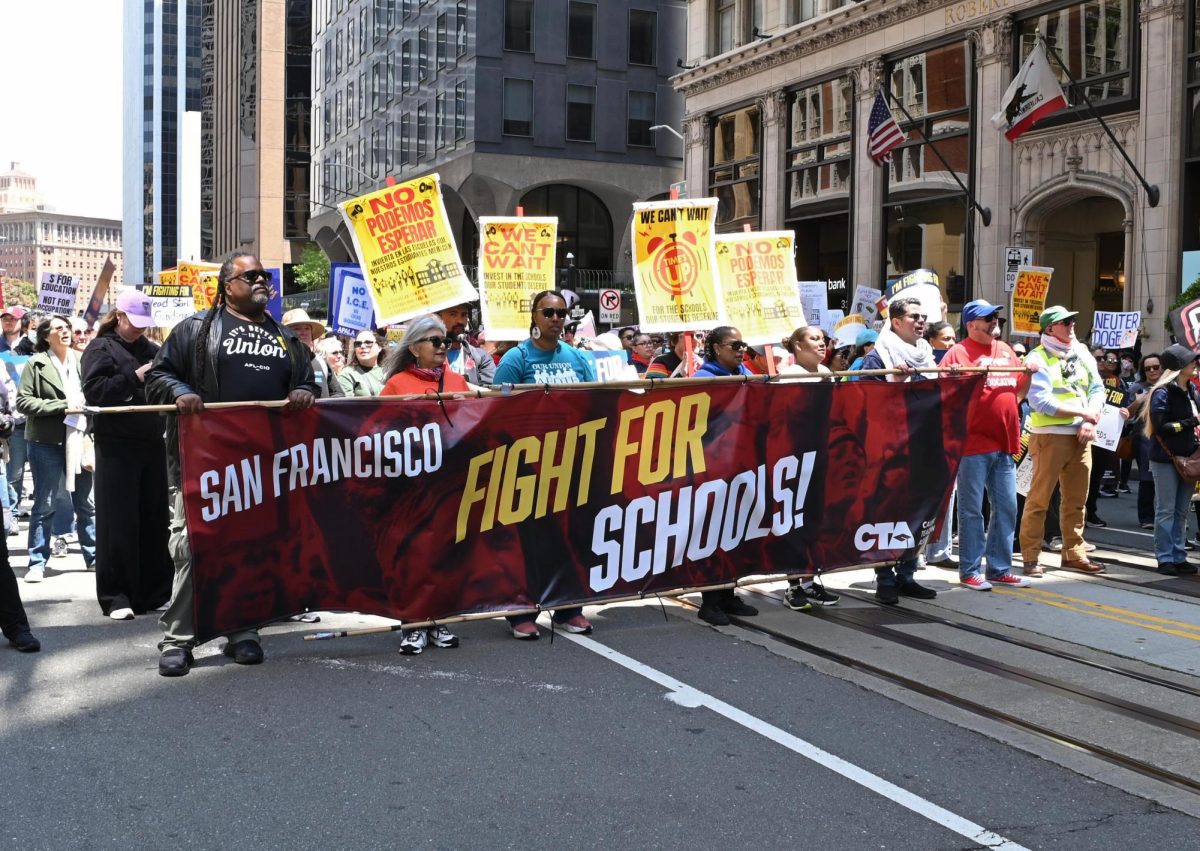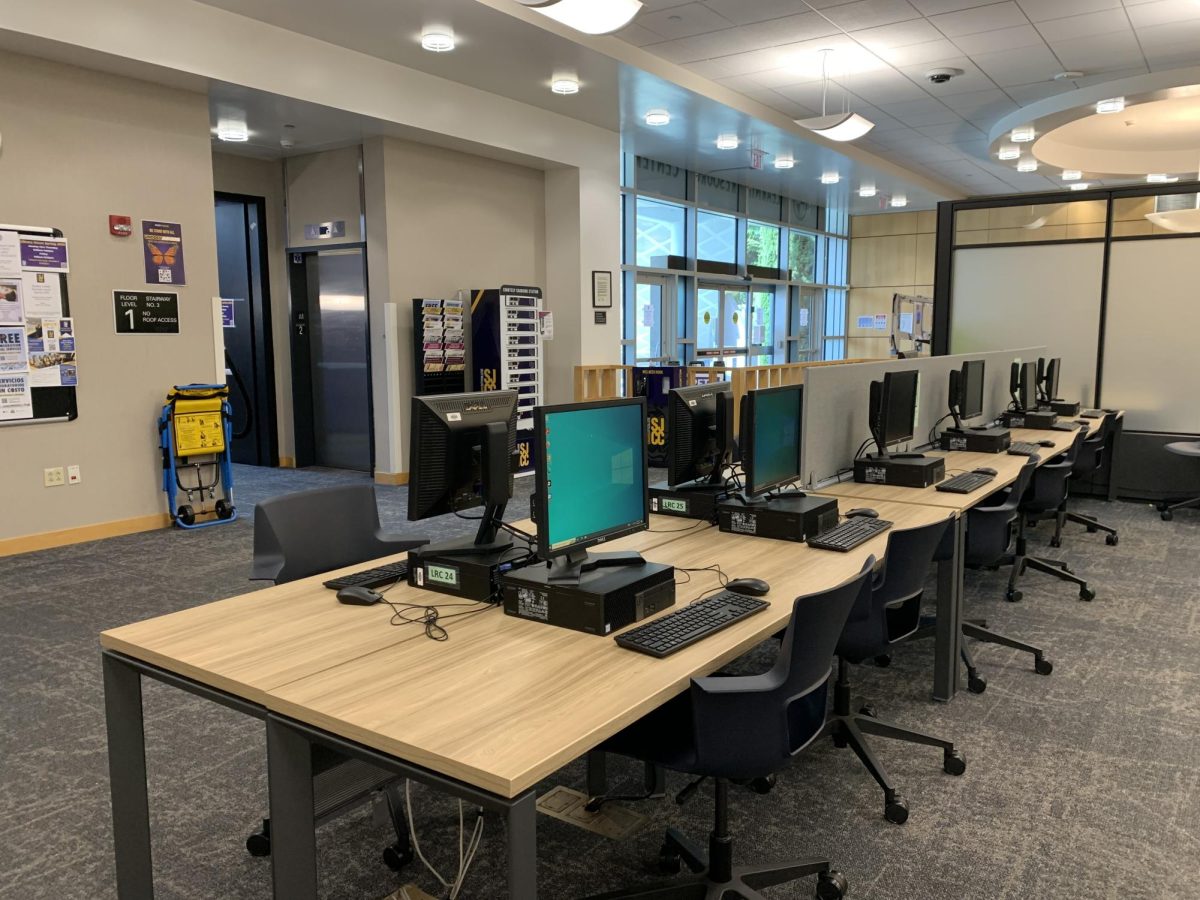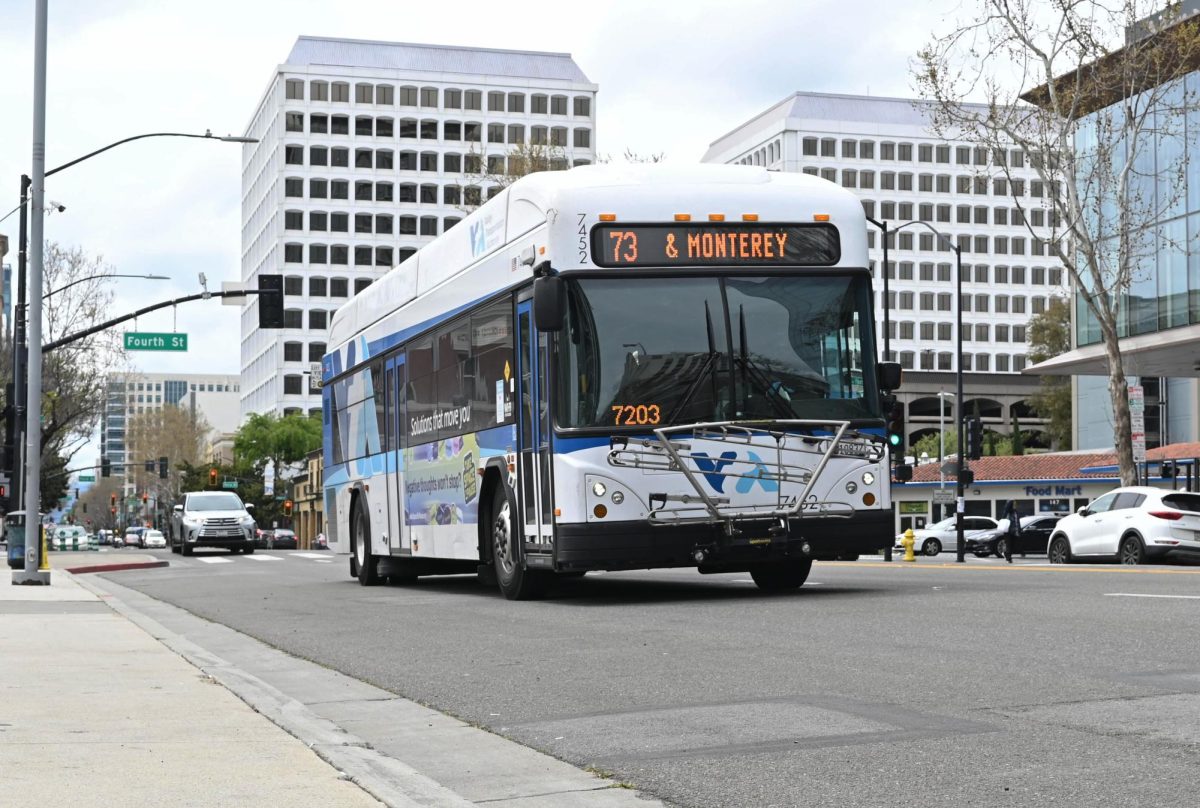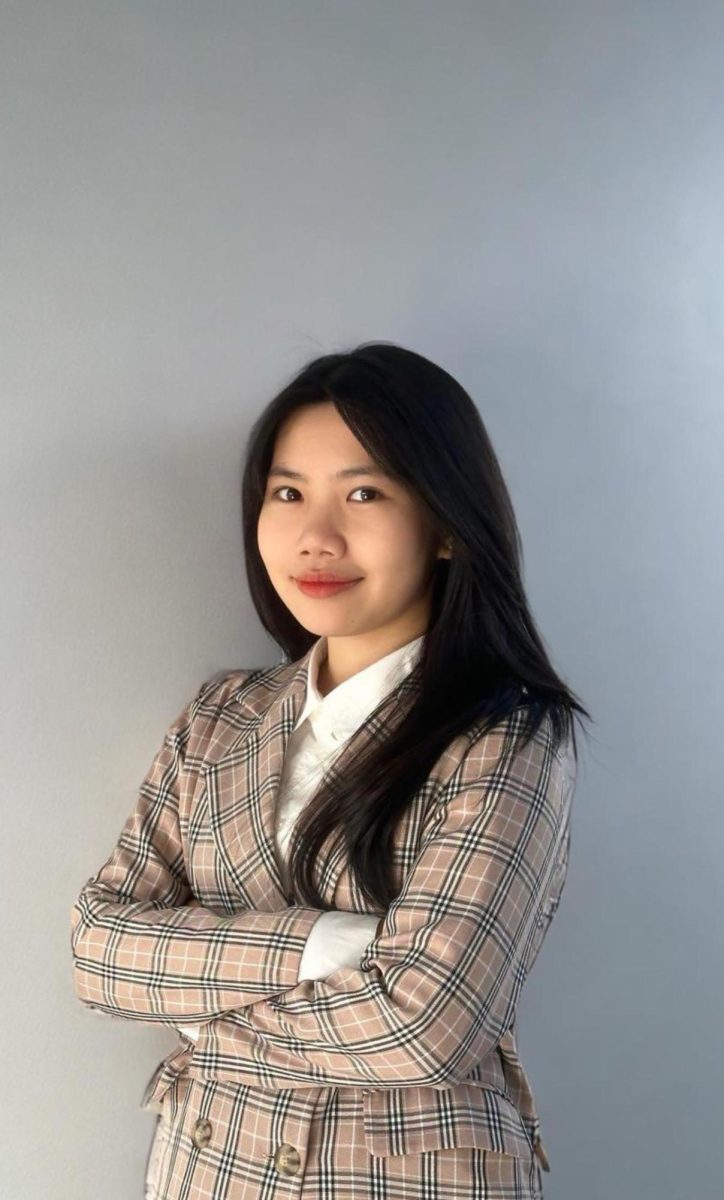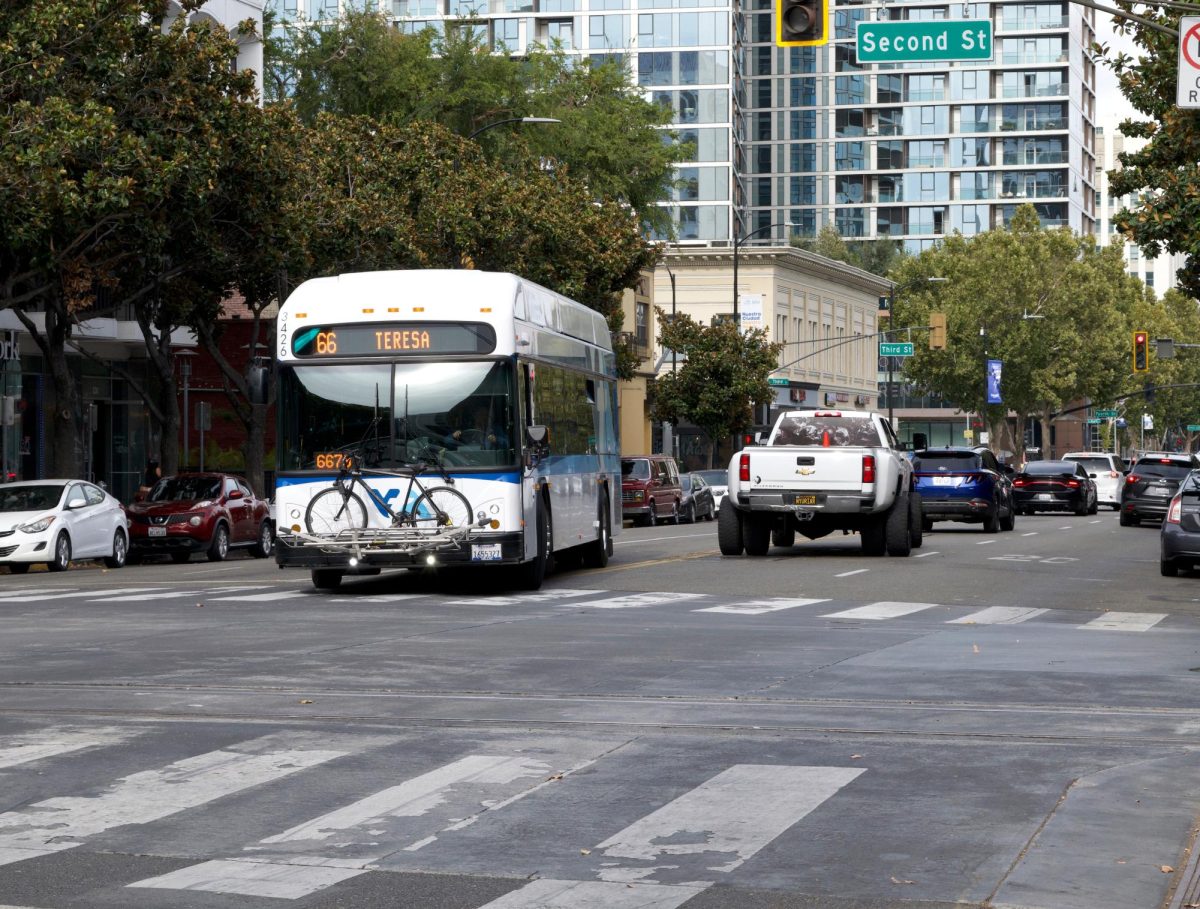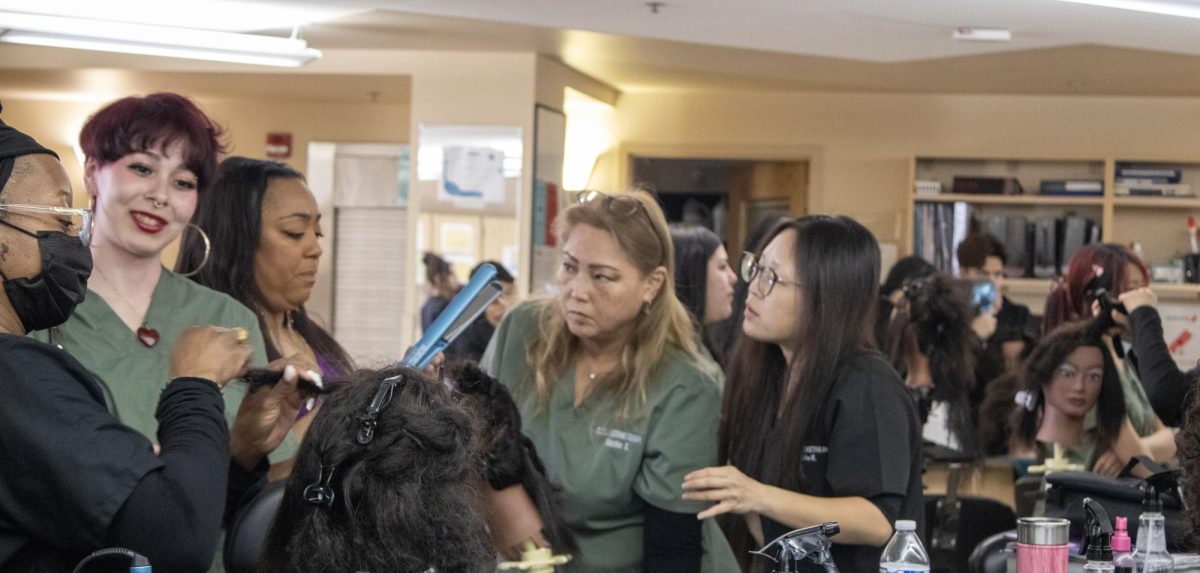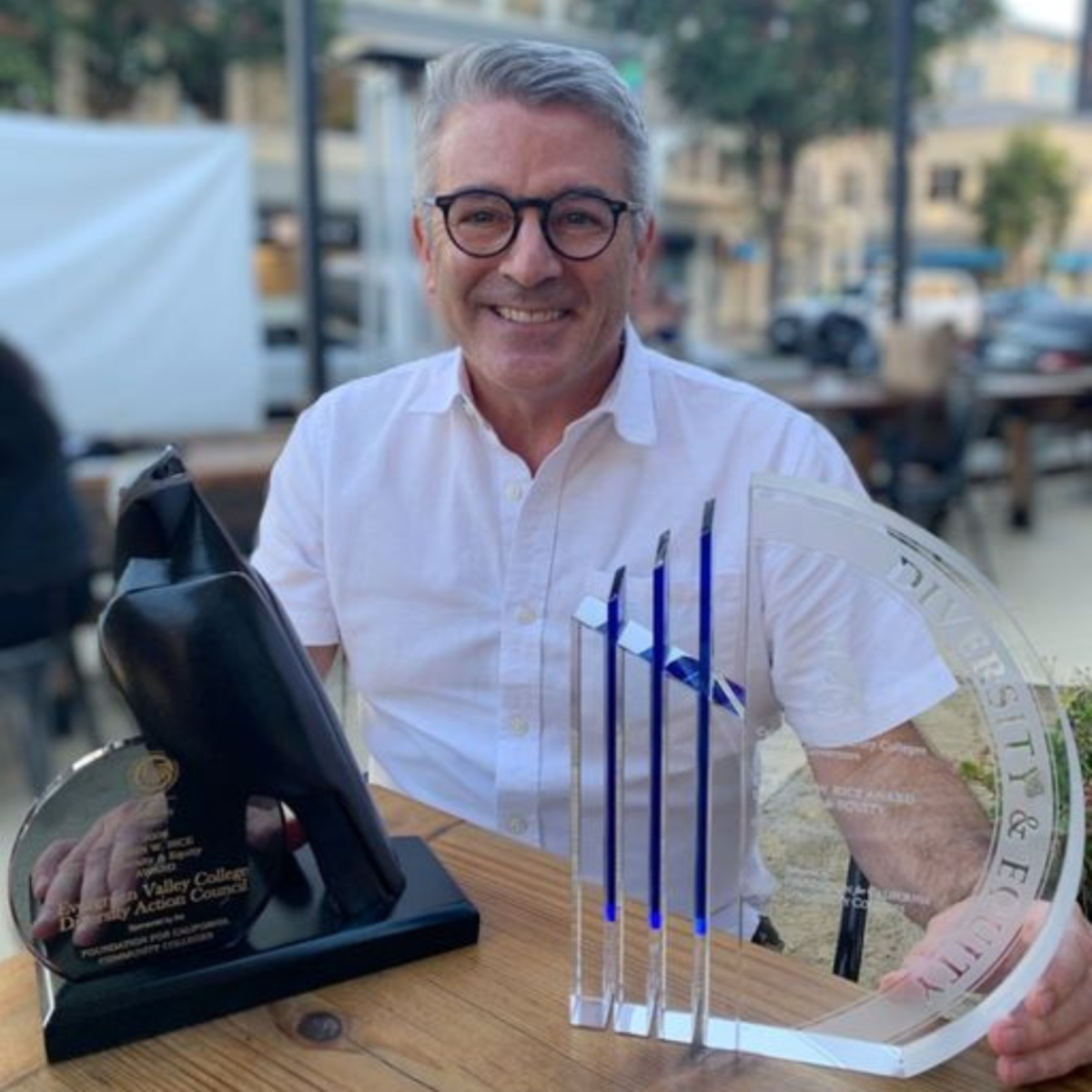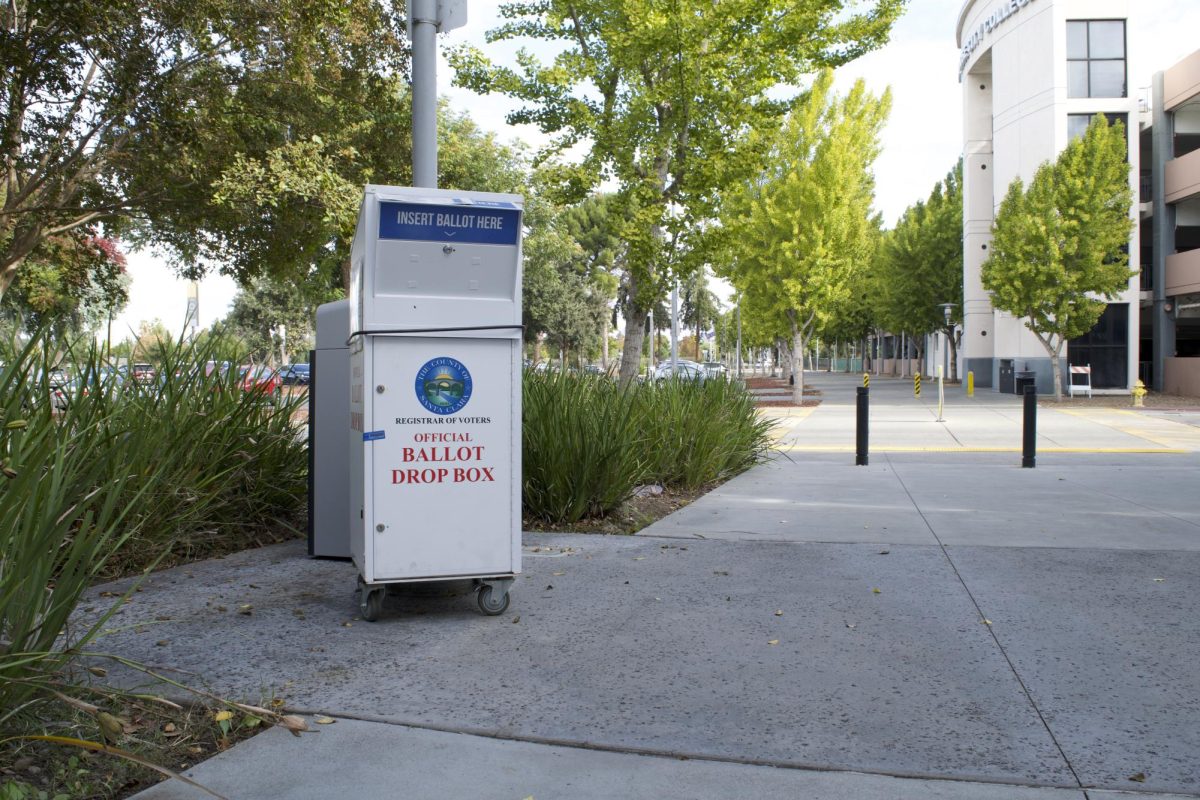San Jose City College hosted a historical ribbon-cutting ceremony on Nov. 25 to honor the life and legacy of civil rights leader César Chávez. The event was attended by direct descendants of the Chávez family, San Jose Mayor Matt Mahan, community members and students.
Music, dance, and ceremonial blessings created a cultural atmosphere inside the SJCC Theater and outside on the wet pavement in front of the Chávez corridor, where families and friends gathered to witness the ceremony.
The new commemorative space on campus is designed to inspire reflection on Chávez’s dedication to justice and equality. It is expected to become an important landmark for both students and community members to engage with the history and ongoing legacy of the civil rights leader.
“This is more than art, this is a sense of pride for our residents and it is an ode to San Jose’s history,” said Mayor Mahan during his speech at the mural ceremony. “This mural will be a source of inspiration for our students here at SJCC, San Jose’s next generation of leaders.”
For most of the fall 2024 semester, students, staff and others in the San Jose community have walked by the cultural creation but most have little to no idea how much planning was required to coordinate this campus-wide centerpiece.
The mural’s composition, design and symbolic attributes would not have been possible without Daniel Garza, Dr. Celia Cruz- Johnson and the rest of the mural advisory committee for partnering with Carlos Rodriguez, a Mexican muralist.
“It took around two years, many rounds of agreement, and multiple artists,” said Garza, SJCC’s director of marketing and public relations. “We were able to get Rodriguez, a local artist here … really well known … we got really lucky.”
Rodriguez and fellow artist Steve Martinez have been crafting this dedicative piece of history for quite some time now. Both artists worked day in and day out, through the heat and cold, ensuring the mural would be ready for the ceremony.
“This is a great honor for me,” Rodriguez said. “[Chávez] didn’t want the attention or the [namesakes] or the Holidays. That’s what moved me. It was clear to me that it was the people … the workers … the people around him, his family, that kept him strong and kept him going.”
Chávez’s work didn’t just change the lives of farmworkers. It changed the course of history, and SJCC continues to carry his message forward.
In 2003, SJCC named its library after him, reflecting a deep connection to his work and values. Inside the library, a recording from his visit and speech to the campus in 1976 continues to serve tribute.
And 48 years later, the emotional connection between culture and community collided once again.
Throughout the theater, smiles and laughter could be seen and heard. Loved ones hugged one another in celebration and tears were shed in light of more speeches. This time though, the speeches weren’t from Chávez. They were because of him.
“César Chávez’s legacy is a story of people,” Mahan said at the podium. “Determined, fearless, hopeful people who devoted their lives to advocating for a more just world … They didn’t have money or influence on their side. They had something stronger. They had morality and humanity.”

